Service dogs provide independence, comfort, and safety to their handler, assisting them with their disability and providing them with companionship. As the dog training community continues to find new tasks to train for a variety of disabilities, the community continues to see more and more untrained dogs sold as service dogs, making selecting a service dog program very intimidating.
As there is no national service dog standard in the United States currently, it is critical for individuals to choose service dog programs wisely. While there is nothing more incredible than seeing dogs and handlers bond and individuals benefit from their service dog, it can be devastating to see time and money spent on a dog that is not prepared for their job.
Here are a few things to consider when researching service dog programs.
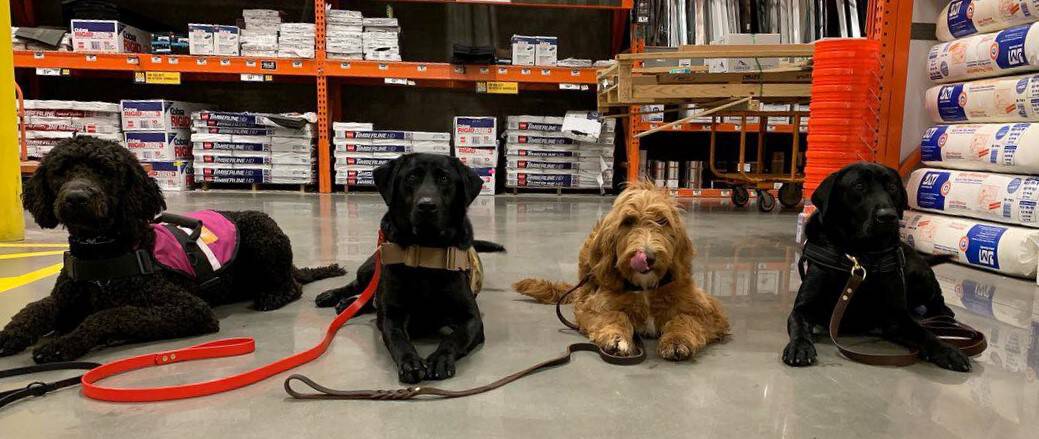
How long are the dogs in training?
When looking for a service dog program, be sure to learn how long their dogs are in training, before being graduated from the program. Service dog training takes a lot of time and dedication, and they need to have outstanding obedience and socialization. Dogs that have not gone to enough new environments may be fearful or aggressive with objects and people they find unfamiliar.
Likewise, dogs with little experience practicing obedience in new places may be too excited to focus on their handler without proper training. Make sure the program you choose spends a significant amount of time in new environments practicing obedience and exposing their dogs to a variety of different places. A well-trained dog will be confident and comfortable in new places and be willing to do obedience with a significant amount of distraction around them. This can only be accomplished by a long period of consistent training, typically starting from puppyhood.
What is the process?
All programs have a different process from beginning to end. A quality program will be clear and upfront about their process and why they work in a particular way. Be cautious of programs that want vague deposits without clear explanation of what they are for or why. Programs that can explain why they do things are typically more organized and produce high-quality service dogs.
What is the cost?
Cost is a huge factor for the program people choose to purchase a service dog. Keep in mind that a dog which has had the necessary training and socialization needed to work in every environment will not be cheap. Typically, half-price programs produce half-trained dogs.
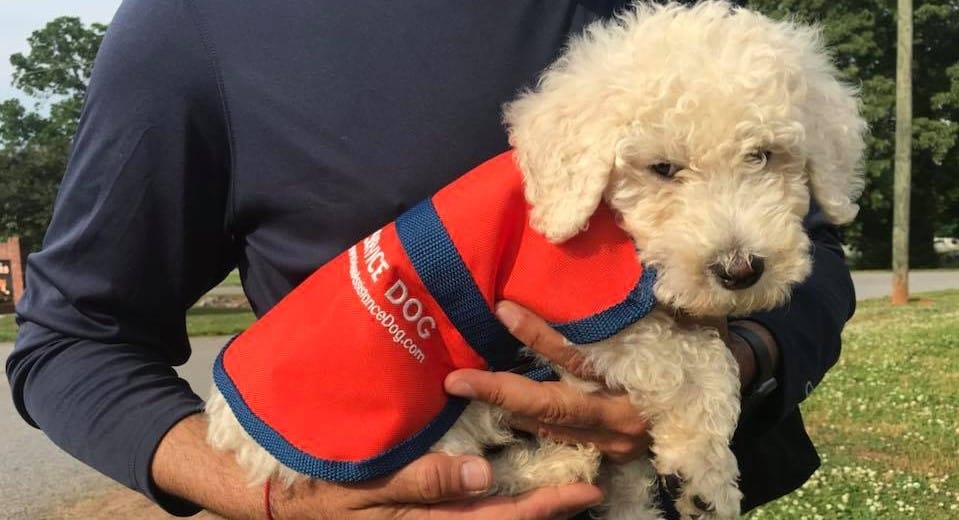
How are the dogs selected?
It is important to make sure the program you choose is picky about the dogs they train. Just like people, dogs each have their own personalities; not all are suited for service work. Make sure the program you are interested in is testing puppies from the beginning to ensure your service dog is friendly and will be a wonderful addition to your family. Each dog is unique despite breed stereotypes, and just because a program is training a breed popularly seen as service dogs, doesn’t mean they have the right temperament for the job.
How old will your service dog be?
When looking into programs, make sure you know the age your dog will be deemed a fully trained service dog. Service training takes a lot of time and commitment from trainers to be successful. Be aware of the dog’s age and the amount of training they may have. For example, an eight-week-old puppy will not have the same level of training as a year and a half year old dog will have. Make sure the program you choose can give you a rough estimate on age and explain why they choose to let families take them home at that age.
What are the tasks being trained?
A service dog is totally different from pet dogs and therapy dogs because of the specific tasks the dog is trained for – to assist their handler with a disability. Make sure you understand the tasks your dog will be trained for and don’t be shy about asking questions. A quality program should be able to explain what tasks the dog will be trained for and how they will assist you with your needs. There should also be clear explanations on how you will maintain the tasks at home. If a program does not train specific tasks you may find yourself with a dog that has good obedience but is not quite ready to be a service dog.
Where do the dogs stay?
It’s important to know what type of living environment your future service dog will be coming from. If a dog never spends time in a home, they may not even be house broken. Most programs utilize kennels, which is not a bad thing, but be sure your dog will have experience in a home environment prior to becoming a part of your family.
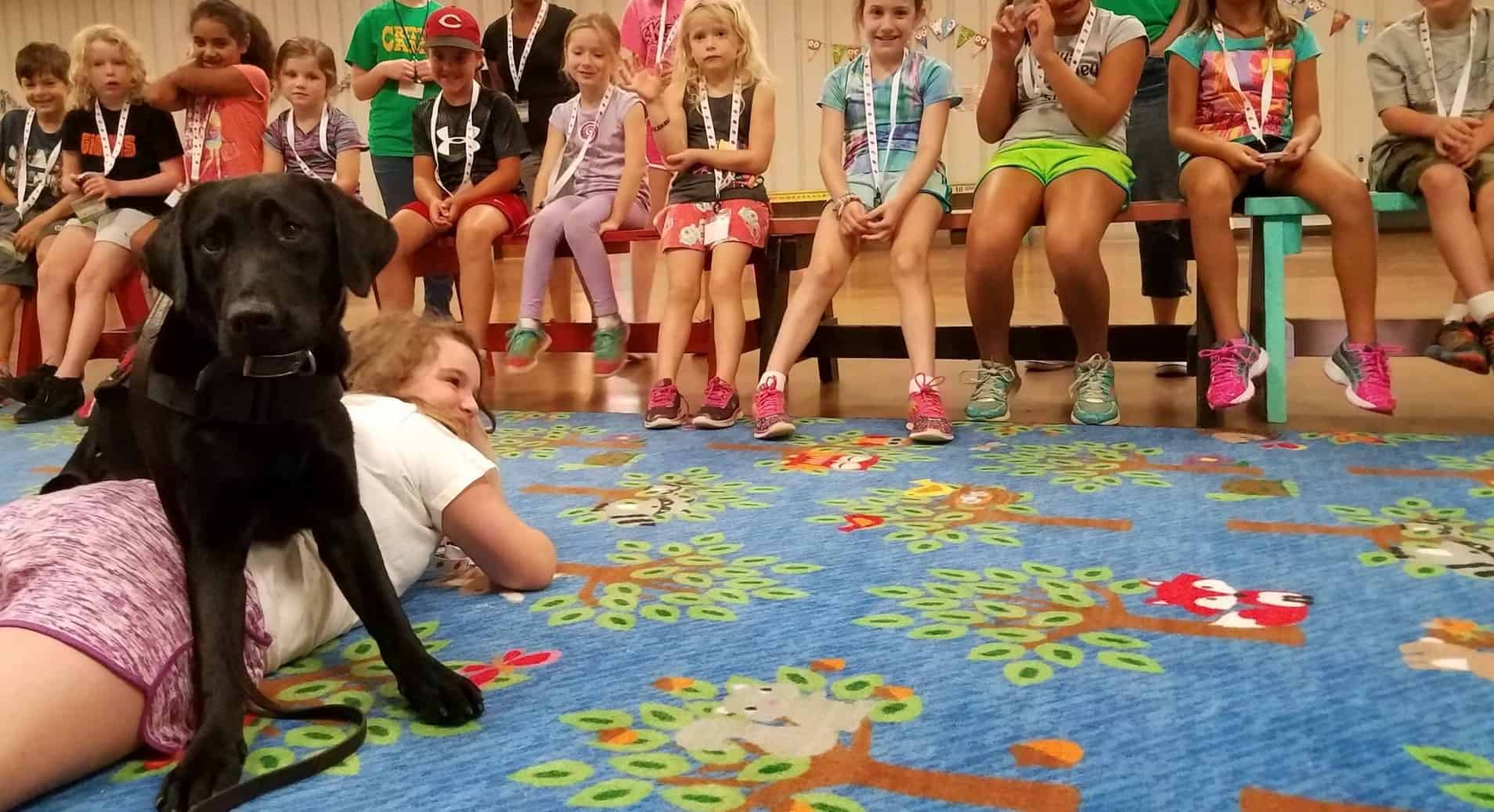
What guarantees does the training have?
Every service dog regardless of how well trained will require maintenance training. Just like people, if a dog doesn’t consistently practice a skill, they will forget it! Make sure the program you are working with will show you how to properly work with your service dog so you can keep their training sharp. Also make sure you are aware of the program’s policies. What happens if something goes wrong? Are they willing to help you with training after the dog is settled into your home? How do they transition the dog over to a new handler?
Be aware of how involved the program will be with the continued training of your service dog. Programs that believe in what they are doing will be willing to help out because they want to see their dogs succeed.
In Summary
There are a number of factors to consider with something as important as choosing a service dog program. It is important to ensure you focus on choosing an establishment with a proven track record in succeeding in training service dogs, while providing detail on their processes and transparency in their methods.

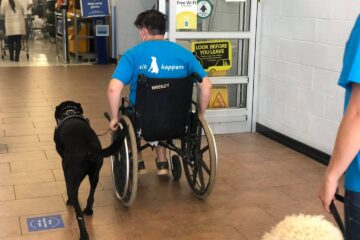
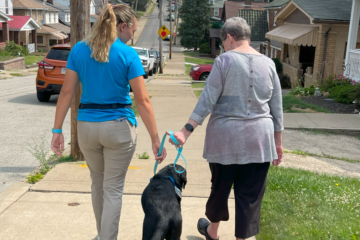
0 Comments